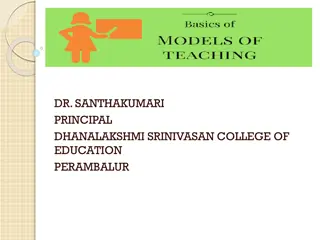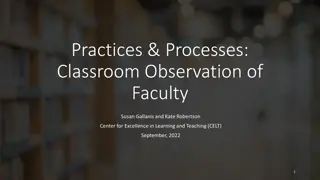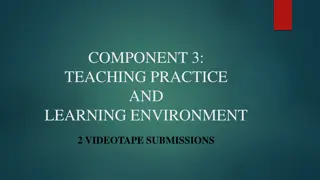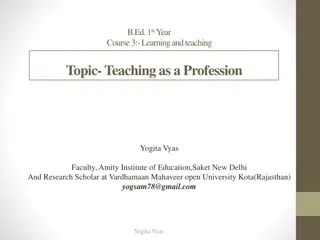
Political Islam: Definition, Emergence, and Impact
Explore the concept of Political Islam, its definition, emergence, and historical impact, from its roots in Egypt to its modern interpretations. Delve into the controversies surrounding its definition and implications for contemporary politics and society.
Download Presentation

Please find below an Image/Link to download the presentation.
The content on the website is provided AS IS for your information and personal use only. It may not be sold, licensed, or shared on other websites without obtaining consent from the author. If you encounter any issues during the download, it is possible that the publisher has removed the file from their server.
You are allowed to download the files provided on this website for personal or commercial use, subject to the condition that they are used lawfully. All files are the property of their respective owners.
The content on the website is provided AS IS for your information and personal use only. It may not be sold, licensed, or shared on other websites without obtaining consent from the author.
E N D
Presentation Transcript
Salahaddin University Erbil College of political science Department of Political system and Public policy Political Islam Third Stage Lecture 1 First Semester 11/09/2023 Maysoon Hawez Mohammed 2023-2024 Email: maysoon.mohammed@su.edu.krd
Common Concepts and words moral confusion. Scholars Despite Implement Critical sacred texts Encouraged inspired offended collapse prevent Circumvent dissipation condemned preached Attempted Presence foundation medieval adhere Nevertheless Approach Compatible Intellectuals Concerned deviated Effort hench-men Circumstances demanded fundamental law Impact Westernization Influence consistent
Political Islam The problem of understanding (political The problem of understanding (political islam the level of definition. the level of definition. What is Political Islam ? What is Political Islam ? How can it best be defined ? How can it best be defined ? Because of this problem many authors do not agree on the specific Because of this problem many authors do not agree on the specific definition. Leaving it to the reader to infer the many meanings of definition. Leaving it to the reader to infer the many meanings of political political islam islam.. islam) begins already at ) begins already at
Introduction The term The termPolitical Islam Political Islamrefers generally to the movements representing modern political refers generally to the movements representing modern political mobilization in the name of Islam, a trend that emerged in the late mobilization in the name of Islam, a trend that emerged in the late 20 20th century. th century. Islamism is an ideology based on Islam, Like any other religion, Islam offers a number of general Islamism is an ideology based on Islam, Like any other religion, Islam offers a number of general principles and guidelines that can principles and guidelines that can be interpreted be interpreted in different ways and justify different positions, in different ways and justify different positions, including in relation to systems of government. In short Islamism means the use of religious including in relation to systems of government. In short Islamism means the use of religious beliefs and values beliefs and values to form a political entity called to form a political entity called the Islamic state the Islamic state (al (al- -dawla dawlaalislamiyya alislamiyya). ).
Political Islam emerged for the first time in Egypt Political Islam emerged for the first time in Egypt (1928) under the leadership of (Hassan Al (1928) under the leadership of (Hassan Al- -Banna called the Muslim Brotherhood, as a reaction called the Muslim Brotherhood, as a reaction against the creation of the nation against the creation of the nation- -state and the wave of communism and Europeanization. wave of communism and Europeanization. The main goal of the Muslim Brotherhood can be The main goal of the Muslim Brotherhood can be described as establishing an independent Islamic described as establishing an independent Islamic state governed by the Qur an and the Sunnah of state governed by the Qur an and the Sunnah of the Prophet Muhammad (peace be upon him). the Prophet Muhammad (peace be upon him). Banna) ) When and where did Islamism first appear? state and the
The Modernist Reformers of Islam The first of those scholars was sayyid Jamal al-Din al-Afghani (1839 1897). Despite his name, al-Afghani was probably born in Persia, and he spent most of his life travelling throughout Europe, Asia and the Middle East. Al-Afghani was highly critical of the ulema, who had closed the door of ijtihad (personal interpretation) of Islam s sacred texts, the Koran and the Sunna (the collections of the prophet s actions and sayings).
What does it mean, that the door of ijtihad is closed? By what text was it closed? Which imam said that, after him, no Muslim should use his personal judgment to understand religion [ ]? Al-Afghani encouraged Muslims to circumvent the medieval authors and to return to Islam s original sources, the Koran and the Sunna, and approach them in the way of the salaf, the pious ancestors of the first centuries of Islam, who were never afraid to use reason to interpret Islam as the circumstances demanded.
He believed that internal division had rendered the Muslims too weak to confront of the European challenge. Furthermore, he saw the authoritarian rulers across the Islamic world as an obstacle to progress. Yet his rhetoric was often revolutionary the [Muslim] community must choose a king on condition that he is trustworthy and submits to the fundamental law
Al-Afghanis main disciple was sheikh Muhammad Abduh (18491905). A native of Egypt and graduate of al-Azhar, Abduh was concerned with the question of Islam and development. He believed that Islam is compatible with reason, Similarly, Abduh believed that the Koran is consistent with modern science. he was convinced that in one of his articles, entitled The errors of the intellectuals : Our intellectuals, who wish for our country to be like Europe, will not succeed in their endeavors. They are harming themselves, Why?
because their efforts fail to have any impact, and they are harming the country, because their projects are not based on sound foundations , Whoever wants the good of the country only has to improve education. In addition, the sheikh had concerns that the Westernization of the Islamic world was leading to moral confusion. Moreover, he insisted that religion should be the underlying basis for the modernization of Muslim societies. And he said if the religion of Muslims can work these ends and has their confidence, why seek for other means?
The Emergence of Political Islam In the 18th century Europe's influence was growing. This was most notable in the Islamic world. As a response to this, many new Islamic scholars, activists attempted to reform their societies and nations so they could prevent the growing presence of Europe. One of those reformists was Jamal ad-Din al-Afghani, preached of a modern state guided by Islamic principles. unsuccessful, his work strongly influenced the minds of thousands of activists, and one of those peoples was Hassan al-Banna, who would later lay the foundation of the Muslim brotherhood. and ideologist his ideas Although he was
Hasan Al-Banna (19061949), was not a man of religion, but a schoolteacher. Nevertheless, he provided a radical interpretation of Islam, summarily condemned those who did not adhere to his reading as enemies of religion and hench-men of the colonial powers Hasan Al-Banna was born in Egypt, and moved to Cairo to continue his studies when he was a teenager. In the capital, he was shocked by the rapid Westernization of Egyptian society and he noted that the people of Egypt had deviated from religious traditions. Al-Banna was worried about all of this. And he witnessed, while in Cairo, how the wave of dissipation of souls and minds, morals and practices in the name of intellectual freedom reached the top.
Muslim Brotherhood (1928) there were several factors have led Hassan al-Banna to establishment Muslim brotherhood, which is considered as a first political Islamic movement. After the collapse of the Ottoman Empire and the collapse of the Islamic caliphate - as well as the rise of the nation- state model and the spread of the wave of communism. Hassan al-Banna also Witness how Egyptian were trying to learn English or France and how the Egyptians were trying to learn European manners only to become the low classes of the European culture, so this offended him, and it inspired him to establish the Muslim Brotherhood and that is what he did in 1928. it's considered the first Muslim political organization in the world.
The first work and activity of the Muslim Brotherhood were to educate Muslim children. Teaching about the history about their heritage and their culture and most of all it was meant to teach self-respect but eventually, the student's fathers and older brothers started to drop in as well, So The Brotherhood began offering evening programs for adults and this programs became so popular that the Brotherhood opened the new centers and by the 1930s The Brotherhood had become a fraternal organization for men from this it's slowly became a political movement.
Muslim Brotherhood, declared the secular Islam and Egypt's westernization elite as the main enemies of the country the Muslim Brotherhood opposite nationalism and they Viewed with Egypt Syria, and even Libya as one entity instead they called on all Muslims to re-establish the Umma and the Islamic Caliphate, so like Jamaluddin, the Muslim brotherhood preached an Islamic modernization without westernization .
Muslim Brothers sixth general congress during the Muslim Brothers sixth general congress, held in 1941, Al- Banna addressed his followers thus: Brothers, You are not a charitable society, nor a political party, nor an organization with limited aims. You are a new spirit that makes its way to the heart of this umma, reviving it with the Koran. You are a new light that shines, dispelling the darkness of materialism with the knowledge of God. You are a resounding voice that rises, echoing the message of the Messenger (peace be upon him). In truth and without exaggeration, you must feel that you are bearing this burden, which humanity has neglected.
Muslim Brotherhood 1946-1948 Outside of Egypt no one knew much about the Muslim Brotherhood , basically because it had no support among the Egyptian elite. In 1946 they started to conduct several armed operations against the British inside Egypt .also with the expansion of the working class The Brotherhood grew bigger and bigger, at that point organization grew so large, that it became an insurgency fighting against modernist elites and against government and even against secularism and democracy because they viewed these as western ideas. by 1948 the movement had 2000 branches and half a million members and sympathizers they built schools hospitals and pharmacies and their reputation and popularity grew the Brotherhood become so influential that it threatened the Egyptian government and the elite. so the Egyptian prime minister disbanded The Brotherhood impounded its essence arrested many of the core members, this led to a conflict between the monarchy and government against the Muslim brotherhood.
After many bombing and assassination attempts prime minister of the country was assassinated by the Brotherhood and returned the government retaliated by assassinating the founder Al-Banna, this was a setback for the movement but by 1952 military officers overthrew the monarchy with the support of the Brotherhood. But the military junta had a different political view, it was secular as opposed to the Brotherhood. Also the new military rulers did not want to share the power and clashed with the Brotherhood. the new president of Egypt (Gamal Abdel Nasser 1918- 1970) then abolished the Brotherhood and imprisoned thousands of the members. but in the 1970s the brotherhood strikes back when they assassinated the second president of Egypt ( Anwar Sadat 1918-1981 )
after this The Brotherhood became somewhat of an illegal to for the government's domestic policies, some members were released only to be arrested later on , others who were executed they were fake trials etc. it was in this period that a Muslim Brotherhood really adapted the nonviolent reformist strategy some members called an outrage and demanded a violent revolution as a means to achieve their goals. And they left the organization and establish new groups one of those groups as (Hamas 1987). but the Brotherhood itself remains committed to the nonviolent strategy in the next decades there were many clashes between the government and the Muslim Brotherhood. by the 2000s it was experiencing a revival in Egypt . this in the end helped bring the muscle Brotherhood to power after the overthrow of (Mubarak-1981) it was after all the second most organized group after the military. the Muslim Brotherhood has come a long way it was born as a reaction to European imperialism and grew from a small Islamic Group into an influential political organization with many branches in foreign countries.
There are many misconceptions about Muslim Brotherhood some say it's a radical ultra-conservative organization and others say it's liberal and democratic but the truth is somewhere in the middle in its core the Muslim Brotherhood is a political organization, not a religious one its mission is to modernize the country without actually westernizing that means is guided by Islamic principles.
The Islamic State is an inevitable necessity Hassan al Banna Banna emphatically rejected the European model of developmen t, In contrast, recharacterized Islam as the path of glory and fortitude, truth and strength, blessedness and righteousness, firmness, virtue and nobility. Hassan al-Banna believed that Islam was a comprehensive system, meaning both a religion and a system of governance. Also He believed that the existence of an Islamic state was an inevitable necessity to protect the faith of Muslims At the same time, many of the principles of Islam (the Shari'ah) cannot be implemented, If an Islamic government does not exist, then the Islamic State is inevitable.
He championed Islamism as a comprehensive system[nizam shamil ] which should regulate all aspects of life, public and private like: Islam is a comprehensive system, concerned with all aspects of life . It is country and nation, government andumma. It is ethics and power, mercy and justice. It is culture and law, science and judiciary.It is matter and wealth, gain and prosperity. It is holy war [jihad ]and calling[da wa], militia and idea. It is true creed and correct worship.






















